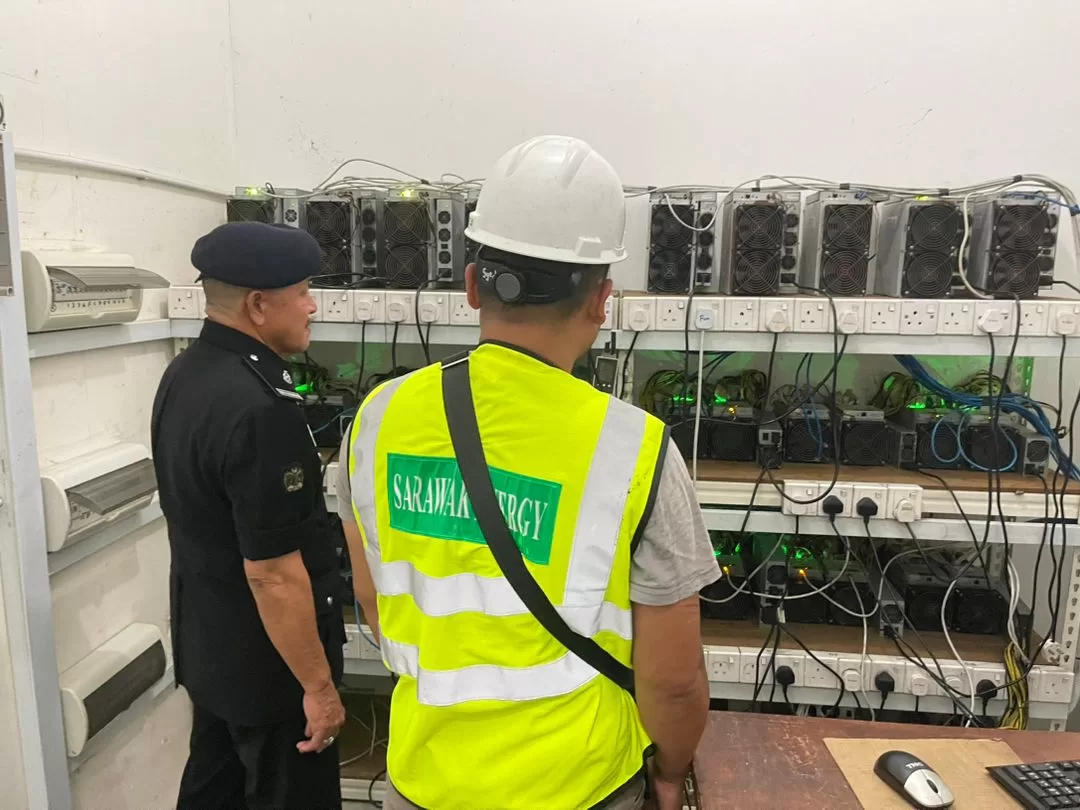In a recent operation, authorities in Miri, Borneo, took swift action to shut down an illegal cryptocurrency mining operation. Acting on a tip-off from the public, Sarawak Energy discovered the operation, which involved 34 mining servers using stolen electricity through cable tapping.

Illegal Operation Foiled
Local authorities seized all the equipment, including servers and cables, and launched an investigation into the matter. The operation was estimated to consume approximately $1300 worth of stolen electricity every month, highlighting the severity of the illegal activity.
Repeated Incidents Raise Concerns
This incident is not an isolated case. Earlier this year, 137 mining servers were seized in Senadin, a town in the same state as Miri. The surge in such illegal mining activities poses a significant concern for both the authorities and utility companies, even in regions like Malaysia, known for offering some of the lowest energy prices.
Challenges for Smaller Operators
As the Bitcoin mining network reaches all-time highs in hash rate and network difficulty, smaller operators face challenges in the industry. With limited resources, illegal mining operators resort to stealing electricity to eliminate running costs and boost profits.
The Need for Stronger Deterrents
The rise in illegal cryptocurrency mining activities calls for stronger measures to deter such practices in the future. Local authorities and utility companies must collaborate to implement effective solutions that discourage illegal mining and protect the integrity of the energy infrastructure.
Safeguarding the Energy Grid
Cable tapping and unauthorized use of electricity not only lead to financial losses for utility companies but also pose potential risks to the stability of the energy grid. Taking prompt action against illegal mining operations is crucial to ensure the safety and reliability of the power supply.
A Balance between Regulation and Innovation
While cracking down on illegal mining is essential, regulators must strike a balance that fosters innovation and legitimate mining activities. The cryptocurrency industry has the potential to drive economic growth, and responsible mining practices should be encouraged.
Collaborative Efforts for a Safer Future
Addressing the challenges posed by illegal cryptocurrency mining requires a collaborative effort between the government, law enforcement agencies, utility companies, and the cryptocurrency community. By working together, they can create a safer and more sustainable future for the digital currency space.
Learning from the Past
The incidents in Borneo serve as a reminder of the importance of proactive measures to combat illegal activities in the cryptocurrency sector. Continuous monitoring, public awareness, and technological advancements can play a crucial role in deterring such activities.
Strengthening Regulations
As the cryptocurrency landscape evolves, regulators must adapt and strengthen regulations to stay ahead of emerging challenges. Clear guidelines and strict enforcement can help create a secure and transparent environment for legitimate cryptocurrency operations.
A Bright Future for Digital Currency
While challenges exist, the future of digital currency remains promising. By addressing the issues of illegal mining and promoting responsible practices, the industry can continue to grow, innovate, and contribute to the global economy.

